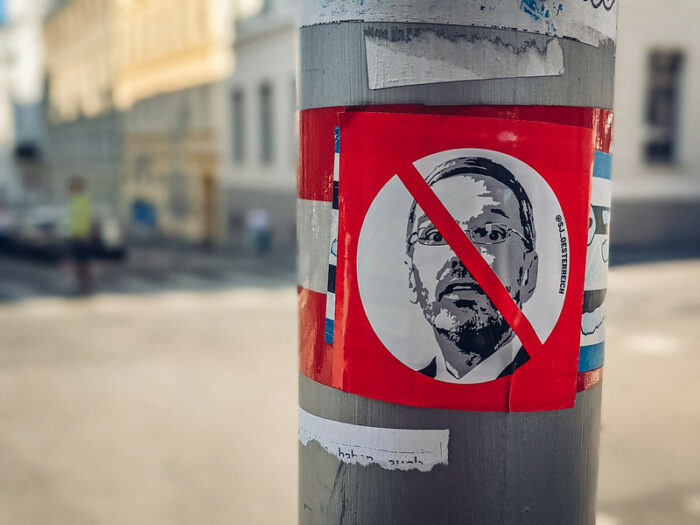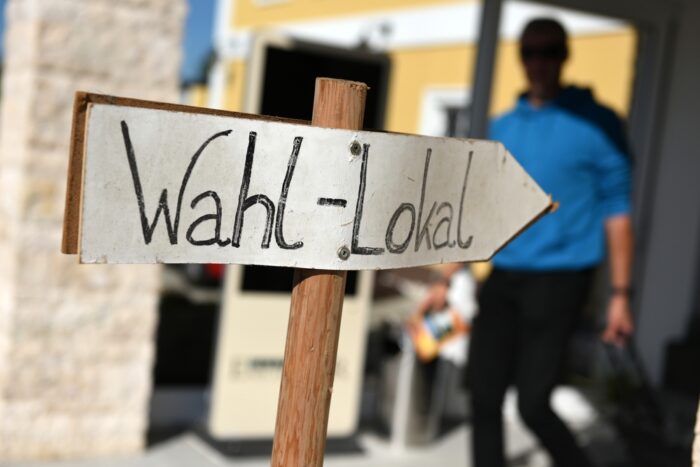The Progressive Post
Does Belarus have a democratic future?

On 24 February 2024, Belarusian cyber-guerrillas hacked 2,000 advertising screens located in public places and launched Sviatlana Tsikhanouskaya’s video message on them. Citizens of Belarus were able to hear words against the dictatorship in the country, the war in Ukraine and fake elections. Her speech became the most striking event during the campaign ahead of the parliamentary elections that were held the following day. It reminded me of fragments from the movie V for Vendetta.
Since 1994, elections in Belarus have raised questions among representatives of the international democratic community. Since 1996, not a single election in Belarus has been recognised by either the democratic opposition or the OSCE. After coming to power in 1994, Alexander Lukashenko began implementing his populist ‘back to the USSR’ policy. Disrespect for the law and the desire to establish a regime of personal power led to Lukashenko’s conflict with the Supreme Council, which he dissolved in 1996. He found support for his political power in Russia, which at that time agreed to be a mediator in resolving the political crisis in Belarus. It was from this moment that the process of establishing the Belarusian dictatorship began.
From 2012 to 2020, Lukashenko tried to manoeuvre between Russia and Western countries. For him, the issue of international recognition and trade relations was important. At that time, Belarus began to open up to the world, the IT sector became a noticeable driver of the Belarusian economy, EU countries became Belarus’s main trading partner, and foreign investors cautiously came to the country. However, the political freedoms that the supposed ‘liberalisation’ was meant to bring did not materialise. During this period, the regime in Minsk was ready to talk with the West about abolishing the death penalty, but not about democracy and free and fair elections.
By 2020, significant changes have taken place within Belarusian society. People began to feel the freedom of movement, the relative freedom and opportunities to earn, to realise their aspirations. By working abroad, Belarusians got acquainted with European standards of working conditions. Society became digitised and outgrew the current government. State propaganda became a marginal phenomenon. The government’s failure to recognise the danger of the coronavirus and, in fact, the epidemic, was a strong blow for the government’s image, which significantly angered the citizens. The arrest of potential opposition candidates (Viktar Babaryka and Siarhei Tsikhanouski) on the eve of the 2020 presidential elections led to protests. Accepting to register Sviatlana Tsikhanouskaya as a presidential candidate was a heavy mistake of the regime, allowing her to become a symbol of a free and democratic Belarus. The Belarusian autocracy managed to gain control again only by relying on Russia.
The elections of 2024
The February 2024 elections to the House of Representatives and Local Councils took place against the background of the liquidation of hundreds of NGOs, the closure of all independent media, and independent unions, the liquidation of 12 out of 15 political parties, 1,413 prisoners recognised by human rights activists as political prisoners. Officially, a high voter turnout of 73.09 per cent was announced, but the polling stations had been almost empty during the entire day, putting the official figures in doubt. The independent website ‘Nasha Niva’ estimated that 97 per cent of the members of parliament had been chosen before the election took place.
Mass repressions are a daily occurrence for Belarusians. Activists, political organisations, and various social groups face the risk of repression. The law is no longer applied in Belarus. At least five cases of well-known democratic activists who died in prison are known, among them Social Democrat Ihar Lednik, who died of cardiac arrest on 20 February 2024. He had been sentenced to three years in prison for an article criticising Lukashenko in the magazine of the Belarusian Social Democratic Party (BSDP), which, until 2020, none of the law enforcement officers had paid attention to.
The socio-economic situation in the country
After 2020, up to half a million Belarusian citizens were forced to emigrate. This emigration is both political and economic, as the society suffers hopelessness, a decrease in living standards in the wake of the current sanctions, a de facto transport blockade, stagnation of the economy, the lack of self-realisation and the impossibility of influencing the political decisions in the country at all levels.
Belarus traditionally has a strong industrial base, with a significant number of workers, who traditionally support left-wing and Social Democratic organisations. The defeat of the labour movement in the 1990s prevented the appearance of independent trade unions, who could have become influential political actors. In fact, Belarusian trade unions ended up under state control, only some small independent ones managed to attract workers outside the capital but never managed to count more than 10,000 members.
The state of the opposition
Elections in Belarus are not transparent. Pooling committees depend on executive power and must record the result of the voting in final protocols “as necessary”; independent observers can follow the voting process, but they do not actually see the marks on individual ballots. Due to this lack of counting of votes in the elections after 2000, political parties (including the Social Democratic ones) were left without representatives in Parliament. Always under the threat of exclusion from the political system, the number of members of opposition parties has remained small. And due to the growing pressure the opposition faces from the authorities, legal methods of protests and elections have stopped working.
In the period between 1996 and 2020, in the wake of an ever-deepening re-integration with Russia, the main ideological struggle was between national and post-Soviet projects (in fact, Russian). There was no competition between Social Democrats, liberals and conservatives because they had all been united in the fight against the authoritarian regime. The hope is, that after this, they could fight, democratically, to convince Belarusian voters that theirs would be the best way of developing the country. Because of the repeated defeat of the opposition and protest movements, a significant number of their representatives had no choice but to leave the country. However, despite the formal liquidation of the democratic parties, they continue their work.
In the current conditions, it is of utmost importance to preserve the communities of democratic parties in Belarus and in exile, which, in the future, will be the basis for the restoration of democracy in the country. Most parties clearly see the future of Belarus as part of the European Union. Despite the difficult precondition for the victory of the Social Democrats in Belarus, the potential still exists, because since 1996, no political force has had the opportunity to enter the political scene to prove its distinctiveness and superiority in free and fair elections.
Until now, Sviatlana Tsikhanouskaya remains the symbol of democratic Belarus. We are ready today to work on the country’s democratic future. Perhaps political parties are not very noticeable engines of change now, but in the future, they will form the Belarusian political system. Belarusian Social Democracy has great potential and intend to fight for its future.
Photo credits: Shutterstock.com/UladzimirZuyeu




